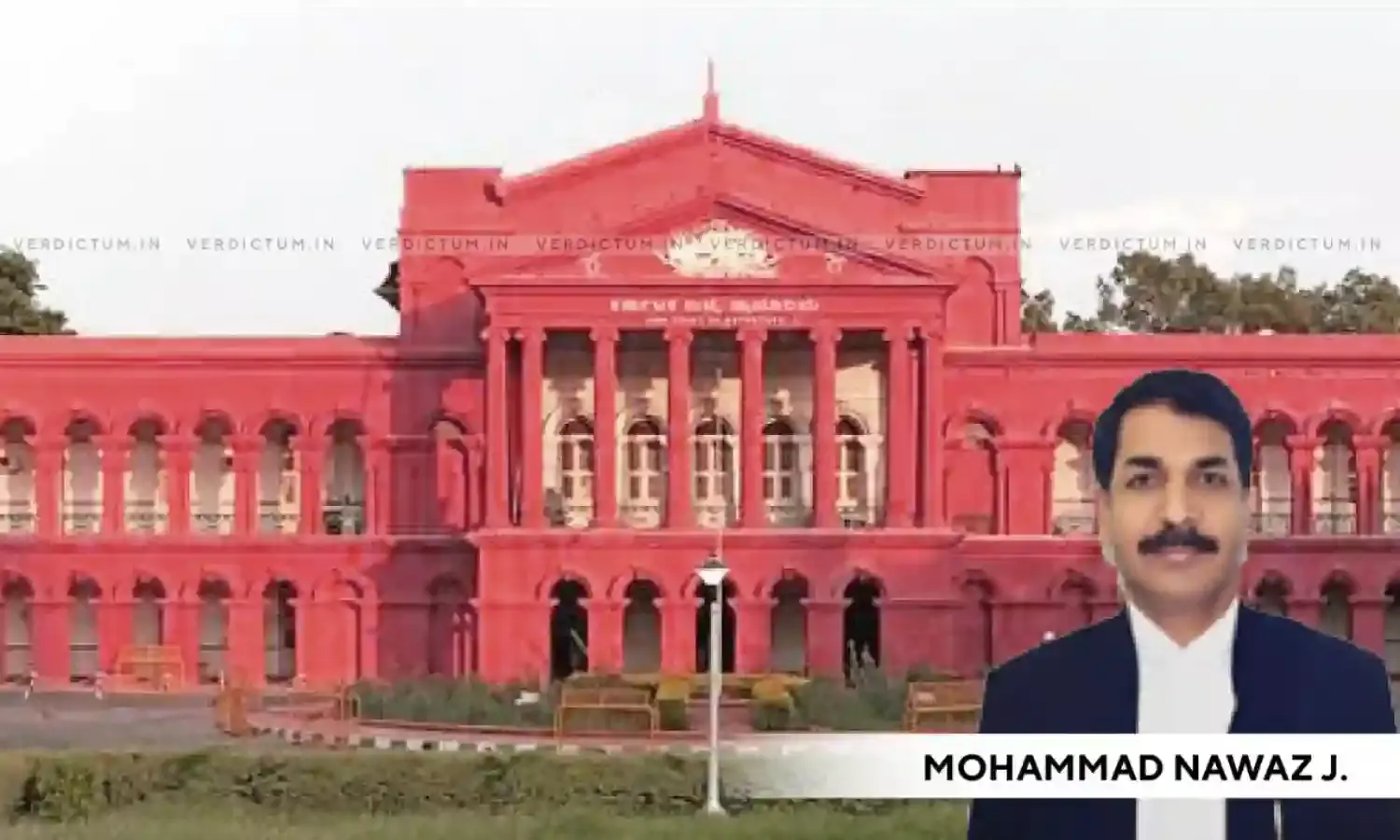Court Duty Bound To Give Reasons For Grant Or Denial Of Bail, Especially For Serious Offences: Karnataka High Court
The Karnataka High Court has held that a Court is duty-bound to give reasons for granting or denying bail, particularly in cases involving serious offences.
"Bail orders either granting or refusing cannot be passed in a mechanical manner or by a cryptic order, without considering the material aspects of the case. Court is duty bound to give reasons for granting or denying bail, especially in cases involving serious offences", the Court observed.
The Court also held that when a bail petition is filed, the Court is bound to take into consideration all the contentions raised and pass an appropriate order.
The Single Bench of Justice Mohammad Nawaz observed that "It is necessary to look into the material on record which prima facie connects the accused with the crime and adverting to those materials, Court can come to the conclusion as to whether a prima facie case has been made out or not and shall assign reasons for either allowing or rejecting a bail petition."
The Court was adjudicating upon a bail application where the appellants were accused of offences under Sections 302, 120(B) and 149 of the Indian Penal Code and Section 3(2)(v) OF SC/ST (Prevention of Atrocities) Act 1989.
It was alleged by one Lakshmamma that her son was murdered by one Rakshith and his associates by assaulting him with deadly weapons like long etc., on his head and other parts of the body.
Advocate Ramakrishna Srinivasan, appearing for the appellants, contended that after the arrest of the accused persons, the alleged eye witnesses had not identified them. He further contended that there were contradictions in their statements recorded under Section 164 of Cr.P.C.
He submitted that the sessions judge had mechanically passed the order rejecting the prayer seeking bail without adverting to any of the contentions raised.
On the other hand, the Government Pleader, R.D. Renukaradhya, argued that the offence committed was heinous in nature and that the sessions Judge had rightly rejected the prayer seeking bail.
The Court observed that the following considerations must be placed in balance while deciding the grant of bail-
• the seriousness of the offence;
• the likelihood of the accused fleeing from justice;
• the impact of release of the accused on the prosecution witnesses;
• likelihood of the accused tampering with evidence.
The Court also opined that if a Court considering an application for bail fails to consider the relevant factors, an Appellate Court may justifiably set aside the order.
The Court noted that the sessions judge had not adverted to the various contentions stated to have been raised by the appellants' counsel, except stating that the accused were alleged to have committed a brutal murder of the deceased and a prima facie case was made out against the accused etc.
The Court further observed that the reasons for rejecting the prayer for bail did not appear to be in accordance with law.
Accordingly, the Court set aside the order of the sessions judge and directed the sessions judge to hear the parties afresh and pass orders on the bail application, in accordance with the law, as expeditiously as possible.
Click here to read/download the Order




